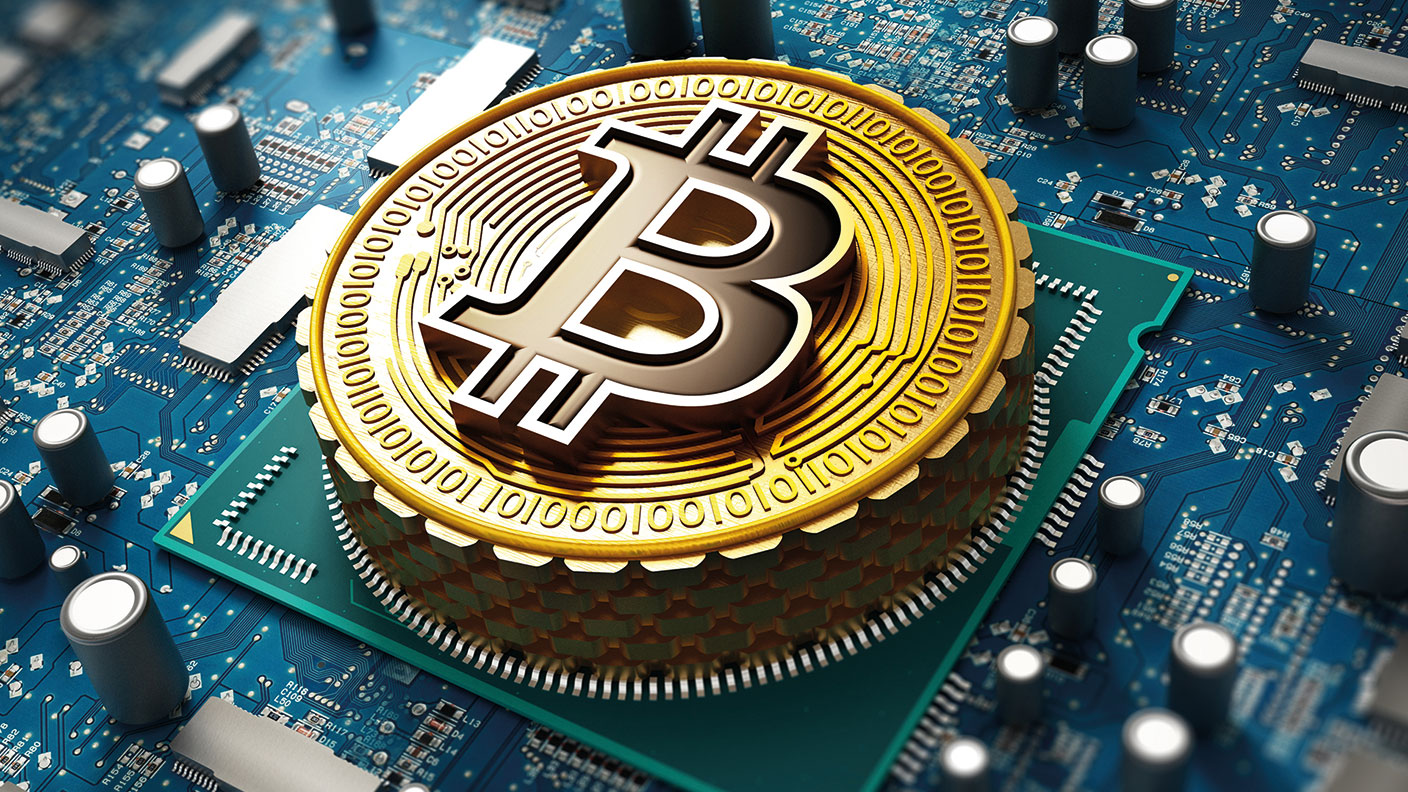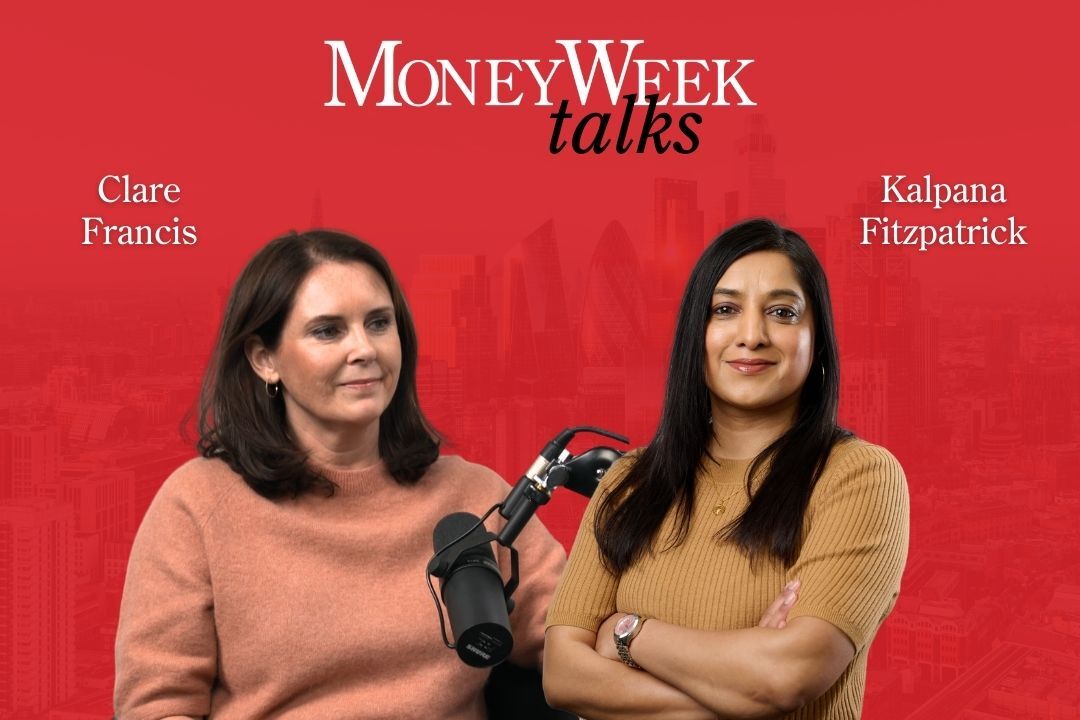Bitcoin: fool’s gold or the new gold?
With bitcoin hitting new highs last week, and close to becoming a mainstream investment, is it really gold for the 21st century?

Get the latest financial news, insights and expert analysis from our award-winning MoneyWeek team, to help you understand what really matters when it comes to your finances.
You are now subscribed
Your newsletter sign-up was successful
Want to add more newsletters?
Is bitcoin “fool’s gold” or the new gold? asks James Dean in The Times. The cryptocurrency hit a new record high of $42,000 late last week, only to plunge by more than 20% over the weekend. Yet at around $34,500 in the middle of this week, bitcoin has still rocketed since October, when it cost $11,000.
A poor payment option
Once the preserve of “basement-dwelling libertarians” who hoped to upend the financial system, today bitcoin is close to becoming a mainstream investment, says The Economist. It turned out to be poor payment option: the network can only handle a few transactions per second.
Instead, the new hope is that it could emulate gold as a store of value that sits beyond the reach of government mismanagement. Younger investors appear to prefer digital wallets to the hassle of managing physical bullion. Yet “fraud and theft” are still “rampant” in the world of bitcoin trading. What’s more, the cryptocurrency’s price tends to move in line with stockmarkets, undermining its credibility as a “safe-haven” asset.
Try 6 free issues of MoneyWeek today
Get unparalleled financial insight, analysis and expert opinion you can profit from.

Sign up to Money Morning
Don't miss the latest investment and personal finances news, market analysis, plus money-saving tips with our free twice-daily newsletter
Don't miss the latest investment and personal finances news, market analysis, plus money-saving tips with our free twice-daily newsletter
Bitcoin’s reputation for “extreme price swings” is still limiting its institutional uptake, says Dean. A store of value is not that useful if it can lose over a fifth in a weekend. Still, those who think bitcoin can “shake off” these problems think there could be big returns to come. JPMorgan estimates that bitcoin would have to quadruple before the total market value matched the $2.7trn that private investors have put into gold. That could imply an eventual bitcoin price of $146,000.
Regulators remain cautious
The comedian John Oliver once joked that bitcoin is “everything you don’t understand about money combined with everything you don’t understand about computers”, says Gavyn Davies in the Financial Times. Regulators are still cautious. This week the Financial Conduct Authority (FCA) warned British investors that “cryptoassets” involve “very high risks”. Consumers who invest “should be prepared to lose all their money”.
Yet ultimately governments will be more comfortable with the idea of cryptocurrency as a replacement for gold than cryptocurrency as a replacement for sovereign fiat money. The latest “frenzy” looks “dubious” to me, but we live in strange times.
Slowly but surely, bitcoin is “being domesticated” says Gian Volpicelli on wired.co.uk. The latest bitcoin run has felt positively “staid” compared to the unbridled mania of the 2017 boom and crash, when investors burnt their savings on “unrealistic promises of endless revenues”. Crypto-based hedge funds doubled their assets under management to $2bn between 2019 and 2020, according to a report from PwC and Elwood.
Yet perhaps the cryptocurrency’s rise is a sign that we have all got a little wilder too. The “chaos and despair” of 2020 has shaken faith in conventional monetary and political systems, says Lex Sokolin of blockchain business Consensys. As a result, institutional investors are looking for an “apocalypse hedge”.
Get the latest financial news, insights and expert analysis from our award-winning MoneyWeek team, to help you understand what really matters when it comes to your finances.
Alex is an investment writer who has been contributing to MoneyWeek since 2015. He has been the magazine’s markets editor since 2019.
Alex has a passion for demystifying the often arcane world of finance for a general readership. While financial media tends to focus compulsively on the latest trend, the best opportunities can lie forgotten elsewhere.
He is especially interested in European equities – where his fluent French helps him to cover the continent’s largest bourse – and emerging markets, where his experience living in Beijing, and conversational Chinese, prove useful.
Hailing from Leeds, he studied Philosophy, Politics and Economics at the University of Oxford. He also holds a Master of Public Health from the University of Manchester.
-
 Are money problems driving the mental health crisis? MoneyWeek Talks
Are money problems driving the mental health crisis? MoneyWeek TalksPodcast Clare Francis, savings and investments director at Barclays, speaks about money and mental health, why you should start investing, and how to build long-term financial resilience.
-
 Pensioners ‘running down larger pots’ to avoid inheritance tax as rule change looms
Pensioners ‘running down larger pots’ to avoid inheritance tax as rule change loomsChanges to inheritance tax (IHT) rules for unused pension pots from April 2027 could trigger an ‘exodus of large defined contribution pension pots’, as retirees spend their savings rather than leave their loved ones with an IHT bill.
-
 Three Indian stocks poised to profit
Three Indian stocks poised to profitIndian stocks are making waves. Here, professional investor Gaurav Narain of the India Capital Growth Fund highlights three of his favourites
-
 UK small-cap stocks ‘are ready to run’
UK small-cap stocks ‘are ready to run’Opinion UK small-cap stocks could be set for a multi-year bull market, with recent strong performance outstripping the large-cap indices
-
 Hints of a private credit crisis rattle investors
Hints of a private credit crisis rattle investorsThere are similarities to 2007 in private credit. Investors shouldn’t panic, but they should be alert to the possibility of a crash.
-
 Investing in Taiwan: profit from the rise of Asia’s Silicon Valley
Investing in Taiwan: profit from the rise of Asia’s Silicon ValleyTaiwan has become a technology manufacturing powerhouse. Smart investors should buy in now, says Matthew Partridge
-
 ‘Why you should mix bitcoin and gold’
‘Why you should mix bitcoin and gold’Opinion Bitcoin and gold are both monetary assets and tend to move in opposite directions. Here's why you should hold both
-
 Invest in the beauty industry as it takes on a new look
Invest in the beauty industry as it takes on a new lookThe beauty industry is proving resilient in troubled times, helped by its ability to shape new trends, says Maryam Cockar
-
 Should you invest in energy provider SSE?
Should you invest in energy provider SSE?Energy provider SSE is going for growth and looks reasonably valued. Should you invest?
-
 Has the market misjudged Relx?
Has the market misjudged Relx?Relx shares fell on fears that AI was about to eat its lunch, but the firm remains well placed to thrive